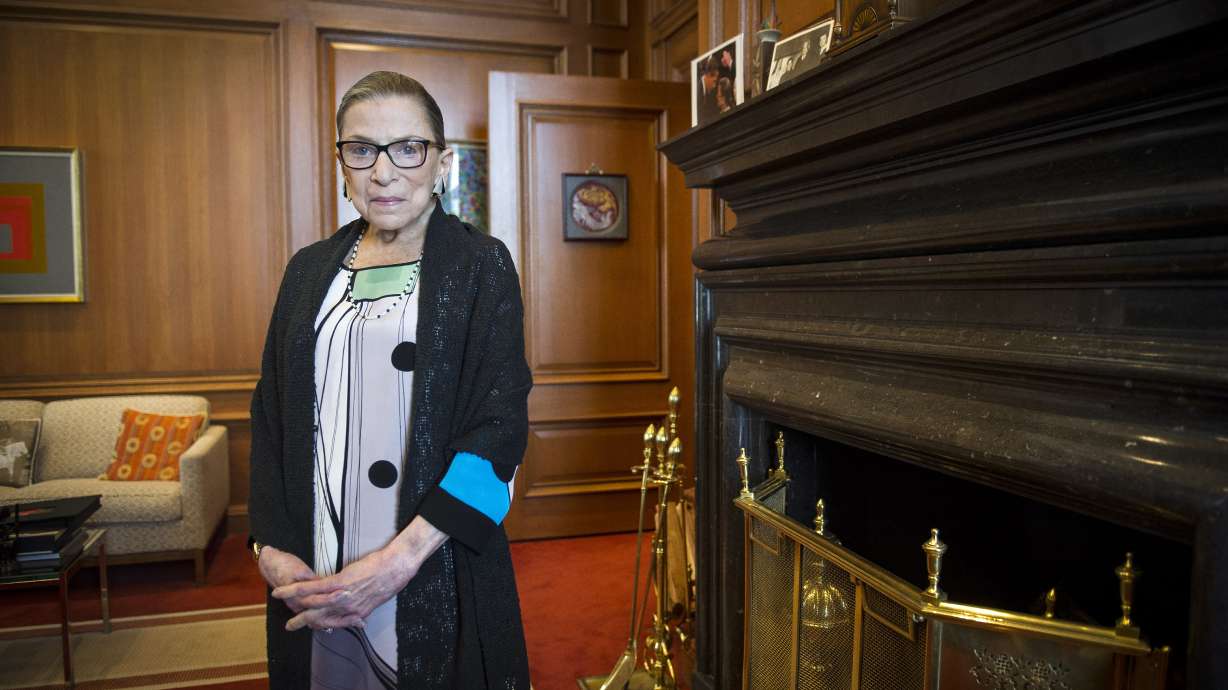Estimated read time: 3-4 minutes
This archived news story is available only for your personal, non-commercial use. Information in the story may be outdated or superseded by additional information. Reading or replaying the story in its archived form does not constitute a republication of the story.
WASHINGTON (AP) — Same-sex couples in 11 more states would win the right to marry, but the issue would remain unsettled nationwide if the Supreme Court were to surprise everyone and decline to take up gay marriage right now.
A decision by the justices to reject calls from all quarters to take up same-sex marriage would lead to gay and lesbian unions in 30 states and the District of Columbia, up from 19 states.
Couples in Indiana, Oklahoma, Utah, Virginia and Wisconsin could begin getting married almost immediately. Rulings in their favor have been put on hold while the Supreme Court considers their cases.
And if the high court leaves those rulings in place, same-sex couples almost certainly would win the right to marry in six other states in short order because those states — Colorado, Kansas, North Carolina, South Carolina, West Virginia and Wyoming — would be bound by the same appeals court decisions.
But rejection of pending appeals by the Supreme Court would leave untouched the laws in the other 20 states that still enforce same-sex marriage bans.
"This affects people's lives. Literally, people are dying before they can get married," said James Esseks, a gay rights expert with the American Civil Liberties Union.
That is one reason that almost everyone who follows the issue for a living or otherwise thinks the Supreme Court will step in and decide gay marriage cases this term. The cases were on the agenda when the justices met in private Monday to decide new cases to hear this term. The court could announce a decision as early as this week.
Both sides in the dispute also say the justices have an obligation to settle an issue of such national importance, not abdicate that responsibility to lower court judges. Opting out of hearing the cases would leave those lower court rulings in place.
Justice Ruth Bader Ginsburg appeared to be addressing that concern when she said in July that the court would not duck the issue, as it did for years with bans on interracial marriage.
Yet more recently, at a forum in Minnesota, Ginsburg suggested the court might refrain from taking any action unless an appeals court were to uphold a same-sex marriage ban, which would create a split among appeals courts that typically triggers Supreme Court review.
Two other appeals courts, in Cincinnati and San Francisco, could issue decisions any time in same-sex marriage cases. Judges in the Cincinnati-based 6th Circuit who are weighing pro-gay marriage rulings in Kentucky, Michigan, Ohio and Tennessee, appeared more likely to rule in favor of state bans than did the 9th Circuit judges in San Francisco who are considering Idaho and Nevada restrictions on marriage.
If it doesn't take one of the cases immediately, the court could still set them for argument in time for a decision in June 2015. It takes just four of the nine justices to vote to hear a case, but it takes a majority of at least five for an eventual ruling.
Copyright © The Associated Press. All rights reserved. This material may not be published, broadcast, rewritten or redistributed.








